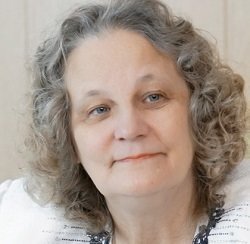Mikhail Nadezhdin: ‘Great, what does this have to do with the ministry’s plans’
The Public Council under the Ministry of Culture of the Republic of Tatarstan loudly discussed theatre patriotism
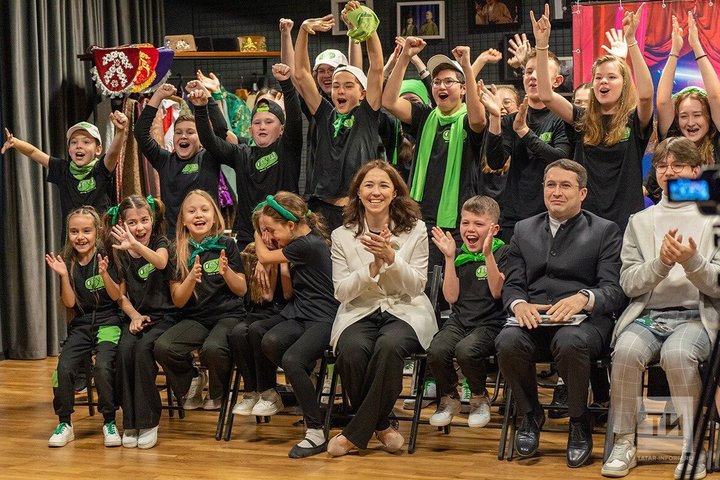
The achievement of goals and objectives of the Ministry of Culture of Tatarstan was discussed in the Public Council of the ministry on 25 July. The discussion was about what patriotism is, criticism of manga and where folk festivals were held in the republic. Read more details in a report of Realnoe Vremya.
Both Sabantuy and Maslenitsa
Vice Minister Damir Natfullin spoke about six goals in detail. The main speaker after Natfullin was Mikhail Nadezhdin from Naberezhnye Chelny, an Afghan veteran and lawyer who became part of the council in September last year. He complained that documents come to the council members too late to have the opportunity to examine them. But something caught his attention.
It was indicated in the 2nd goal (“To increase the attendance of socially vulnerable citizens — disabled people, pensioners, children from large families, orphans, etc. — of events popularising the culture and traditions of the peoples of the Republic of Tatarstan by 5%”) that 3,500 people from this category used libraries. It also included this summer's folk festivals from the Assembly of the Peoples of Tatarstan and the House of Friendship of the Peoples of Tatarstan.
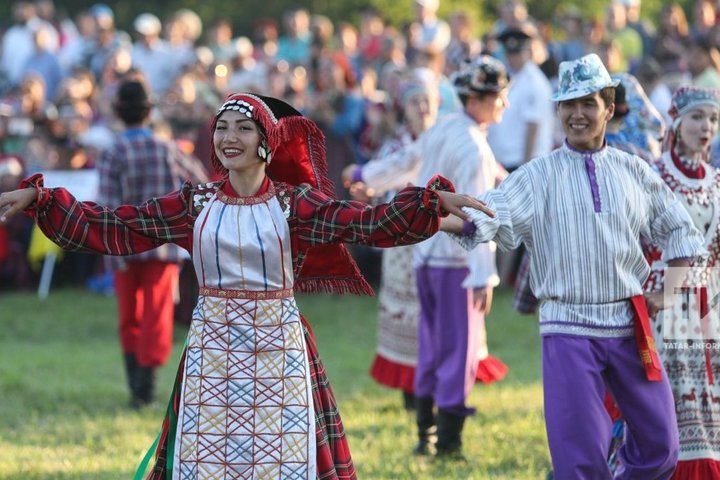
Nadezhdin said that he went to a Chelny library and learned that many books from the Soviet era are not lent to younger children, simply according to a decision of a library employee. In addition, he had questions about folk festivals.
“Sabantuy is held in 400 places outside the region — 62 regions, 32 countries, the first one is in Sochi, the last one is in Australia,” said Nadezhdin.
“In Adelaide,” added Natfullin.
Nadezhdin wondered why Maslenitsa was not celebrated on such a large scale.
“Maslenitsa is celebrated in every district” commented Irina Aleksandrovskaya, vice chairperson of the Council of the Assembly of the Peoples of Tatarstan. “We have a Russian national cultural association, an activist group in each district.”
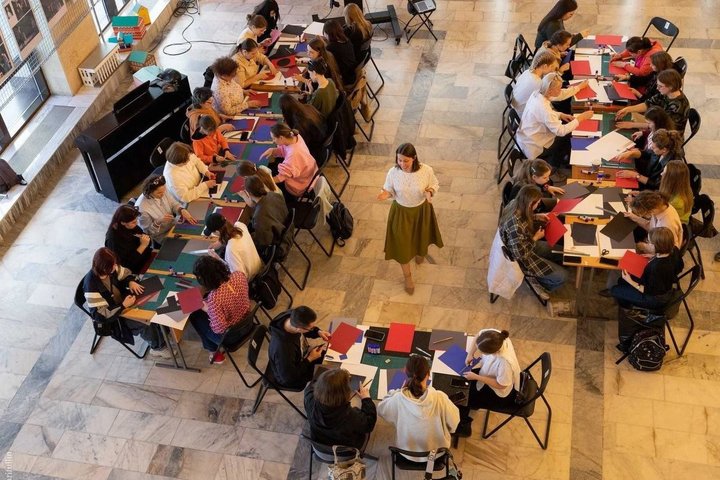
Marya Morevna and manga
The third goal is “to increase the attendance of school-age children at exhibitions dedicated to world and domestic artistic culture by at least 5%.”
In this regard, in the first quarter of this year, children under 16 began to visit state museums by 18% more, but municipal museums have only a 2% rise compared to the same period of 2023. To rectify the situation, the Ministry of Culture plans to improve the Culture for Schoolchildren project.
The 4th goal is “to organise creative laboratories (literature, music or art) for aesthetic, moral and promotional and patriotic education of the younger generation, with a coverage of at least 50 young authors in each direction.” In this part, Natfullin spoke about Ekiyat-LAB puppet laboratory with a sketch of a performance based on the Russian folk tale Marya Morevna.

“Unfortunately, I have not seen this tale,” answered Ayrat Fayzrakhmanov, head of the Department for Public Affairs of the ministry. “But is not a Russian folk tale or a Tatar folk tale patriotic education?”
And finally, the laboratory of comics in the Tatar language in the National Library of the Republic of Tatarstan. Questions were raised around the word “manga.”
“That means that the anime, the subcultures of a country that is our potential enemy are being imposed on our children,” concluded Nadezhdin.
“It is not being imposed,” commented Gulfiya Mutugullina. “I was an employee of the Movement of the First for a year, I supervised culture. And it was a children's initiative. And it is important when we speak the same language with the children. If children want to dance K-pop... Last year I did a K-pop festival for children on Youth Day. And there were 500 people, happy and satisfied, they said thank you.”
“Great, what does this have to do with the ministry's plans?” answered Nadezhdin.
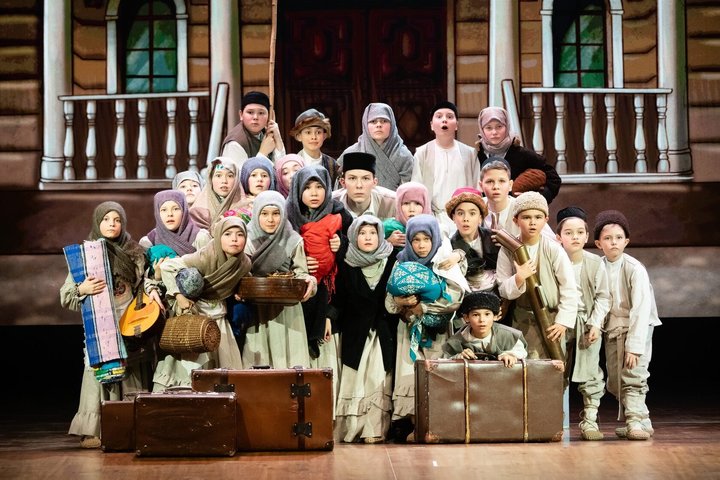
Why the Masterovye are interested in detective stories and where love for the homeland begins
The 5th goal is “to implement a series of free cultural and entertainment events with state cultural institutions in support of soldiers of the special military operation and / or their family members with the involvement of cultural volunteers (at least five events quarterly).
A report on this activity accounted for the most space in the final document, including performances, concerts, meetings with veterans and Heroes of Russia, quizzes.
Here Nadezhdin told how he himself made a concert for veterans.
“There is not a single wounded or recovering fighter from the special operation in Chelny,” the lawyer noted, “so we urgently gathered all the patients in the hospital that we had and sat in front of them. And we ticked the box that ‘a concert for special military operation participants.’”
The last goal is “to implement at least 10 patriotic theatre festivals with the youth, student, school theatres of the Republic of Tatarstan.”
Here they talked about five theatre festivals.
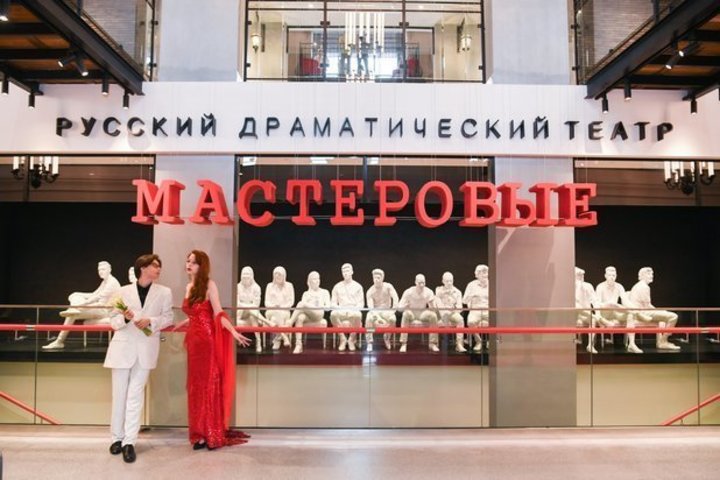
Here Nadezhdin and Chairman of the Public Council Niyaz Iglamov discussed the topic of patriotism. The Chelny resident practically did not find any performances that he could call patriotic, with the exception of Young Hearts of the Chelny Drama Theatre.
“We had an interesting conversation with Diamante,” said Nadezhdin about the conversations with the director of Masterovye theatre. “I suggested that he stage something patriotic. He says that he is more interested in detective stories, and patriotic things are not interesting to him at all, ‘not my thing.’”
“Firstly, I did not participated in those festivals, but I saw some of the performances presented there,” answered Iglamov. “You can’t decide this by the title alone, by the genre name...”
“I read the descriptions, there is nothing patriotic there,” commented Nadezhdin.
“Again, it is very difficult in the absence of a common understanding. What is considered patriotism?” Iglamov clarified.
“Love for [fathers’] graves, this is our previous discussion,” the activist recalled. “And according to Tolstoy, patriotism is the vilest form of slavery. According to Pushkin, to whom this is attributed, it is a refuge for notorious scoundrels. I sent my proposals on patriotism to the coordinating council [on patriotic education] and [Minister of Culture] Irada Ayupova. Unfortunately, they were not included. Patriotism, unfortunately, is not enshrined in law in our country. But it is selfless service to society at the expense of personal service. That is patriotism.”
